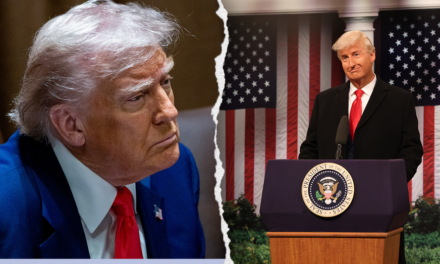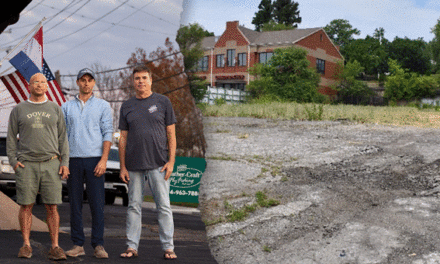In a climate of heightened political tension and debates surrounding the judiciary’s role in democratic processes, renowned legal scholar Jonathan Turley has raised the possibility that the Supreme Court may soon deliver a significant victory for former President Donald Trump. This potential ruling could be a pivotal moment in the ongoing battle between conservative legal philosophies and what Turley terms “left-wing judges.”
Over the past few years, the judiciary has become a key battleground in the United States, with cases often reflecting broader societal divides. Turley’s assertion is rooted in the belief that the Supreme Court, now holding a conservative majority, may rule in favor of Trump in cases that could define the limits of executive power and the judicial system’s intermediary role.
One of the possible cases that could signify this shift involves ongoing investigations and legal issues surrounding Trump, particularly those that challenge the autonomy of state-level judges and their capacity to investigate former presidents. This raises questions about the extent to which state authorities can scrutinize the actions of federal officials, including presidents and their counterparts.
At the fulcrum of this debate is the notion of separation of powers, a principle that has long been held as a foundational element of American governance. Turley emphasizes that the Supreme Court’s potential decision will likely hinge on interpreting this separation of powers, especially concerning state versus federal jurisdiction. Should the court decide to uphold Trump’s position, it could establish a precedent that significantly narrows the scope of what state judges can do in relation to federal officeholders.
Notably, the current composition of the Supreme Court, with a conservative majority, has been marked by a willingness to assert the power of the executive branch in several contentious cases. This trend signals a potential readiness to address the ongoing “judicial activism” that Turley and others believe has become prevalent among judges perceived to lean left politically.
Recent cases seen within the court’s docket reflect this ideological clash. For instance, discussions surrounding election laws and their enforcement demonstrate differing judicial interpretations. Some judges argue for expansive interpretations that expand electoral access, while others argue for approaches that tighten regulations, all seen through a lens of political ideology.
In the context of Trump’s legal battles, the implications extend beyond the former president himself. A ruling in his favor could significantly alter the legal landscape for future presidents and potentially reshape norms regarding accountability. If the Supreme Court grants Trump a sweeping victory, it could empower future leaders, emboldening them against possible judicial scrutiny by state courts when involved in contentious actions.
As legal experts and political commentators analyze the potential outcomes of such a ruling, discussions around judicial integrity and the activist role of judges become imperative. Critics argue that judges should remain impartial arbiters of the law, free from political influence, while proponents of more active judicial roles assert that courts must play a role in checking potential abuses of power, especially from the executive branch.
Moreover, Turley’s assertions come at a time when the political landscape is fraught with division. The battle lines have been drawn not just in Washington D.C., but also in courtrooms across the nation. The outcome of high-stakes judicial battles can have lasting repercussions on public trust in the judiciary. If the Supreme Court is seen as an institution swayed by political considerations, rather than one committed to upholding the rule of law, it could fuel further polarization in an already divided society.
Nevertheless, the future of Trump’s legal challenges remains uncertain. While speculation abounds regarding the court’s impending decisions, various outcomes are possible. The possibility of dissension among the justices themselves adds another layer of unpredictability. For instance, even a conservative majority does not guarantee a unanimous decision, especially on matters as contentious as those involving a high-profile political figure like Trump.
The stakes are high not just for Trump but also for the future interpretation of the law regarding presidential power and accountability. Should the court side decisively with Trump, the legal landscape could shift dramatically, constraining the ability of state and local judges to provide checks on executive action.
Looking ahead, the implications of a Supreme Court ruling favoring Trump could resonate across a variety of issues, from executive privilege to the broader limits of state power. As legal debates evolve, analysts will be closely observing how the court balances its interpretation of the law with the political realities that inform its decisions.
This potential ruling could also reignite discussions around judicial reforms, including calls for term limits or changes to how justices are nominated and confirmed. The dialogue surrounding the role of courts in addressing grievances against government actors is evolving, as citizens increasingly demand accountability from elected officials and the systems that oversee them.
As the nation waits with bated breath for future court rulings, Turley’s analysis serves as a reminder that the intersection of politics and law is complex, fraught with ideology, and often unpredictable. The outcome of these cases may very well determine the balance of power in the United States for years to come, impacting not only Trump’s legacy but also the framework of American democracy itself.
In the months ahead, legal experts will continue to dissect the implications of potential Supreme Court rulings and their larger significance. Each decision has the power not just to adjudicate a specific case but to shape the broader principles guiding the nation’s legal and political ethos.
As Americans engage in heated debates over the role of the judiciary in their lives, the potential for judicial reformation and the response of political leaders to the court’s decisions may dominate political discourse. With each passing day, the tension between judicial independence and political influence remains palpable, illustrating the inherent challenges in maintaining a balanced democracy where justice prevails without partisan bias.
Ultimately, whether the Supreme Court will favor former President Trump, as Jonathan Turley posits, remains to be seen. Still, the ramifications of such a ruling could alter the political landscape and redefine the limits of federal versus state power in profound ways.
































